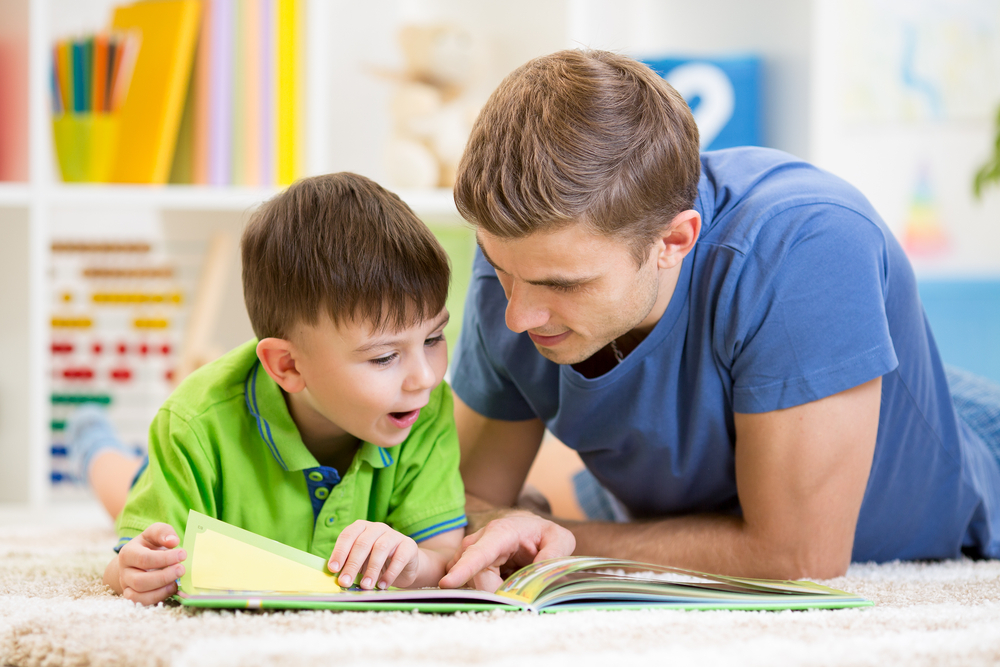Critical thinking development Extra Challenge Worksheets for Ages 5-7
5 filtered results
-
From - To
Unlock your child's potential with our "Critical Thinking Development Extra Challenge Worksheets" tailored for ages 5-7. These engaging activities are designed to sharpen your child's analytical and problem-solving skills while making learning fun. Each worksheet encourages kids to think critically, make connections, and experiment with solutions, enhancing their ability to tackle complex problems. Created by educational experts, our worksheets offer variety and challenge to nurture young minds' growth. Perfect for both classroom and home learning, these printable resources help pave the way for future academic success. Give your little learner the tools they need to excel!
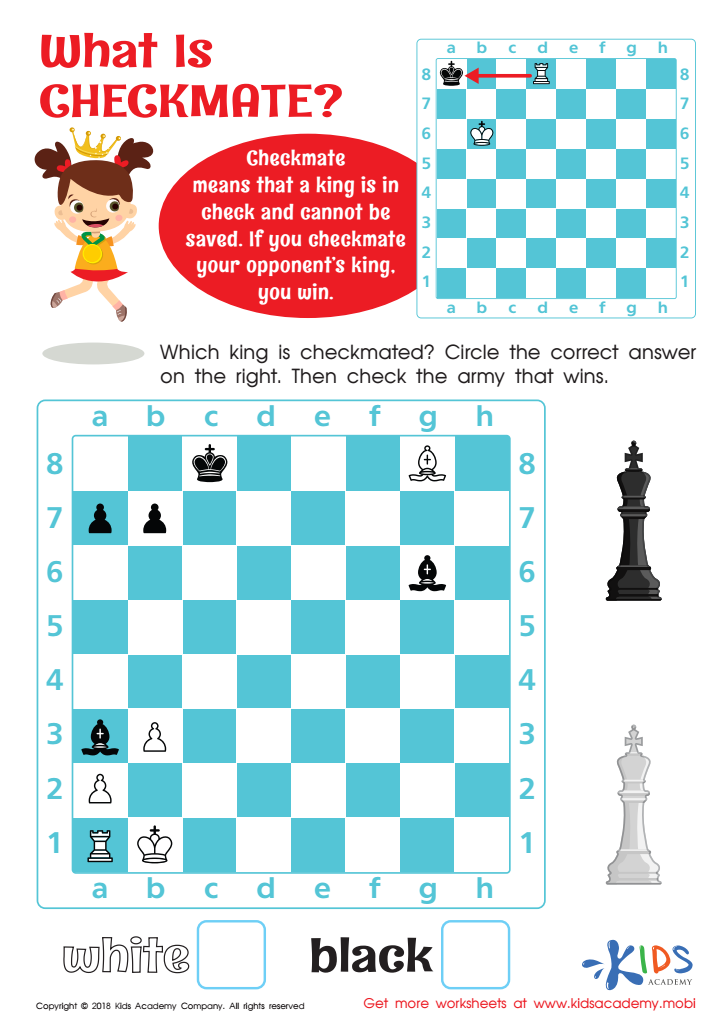

What is Checkmate? Worksheet
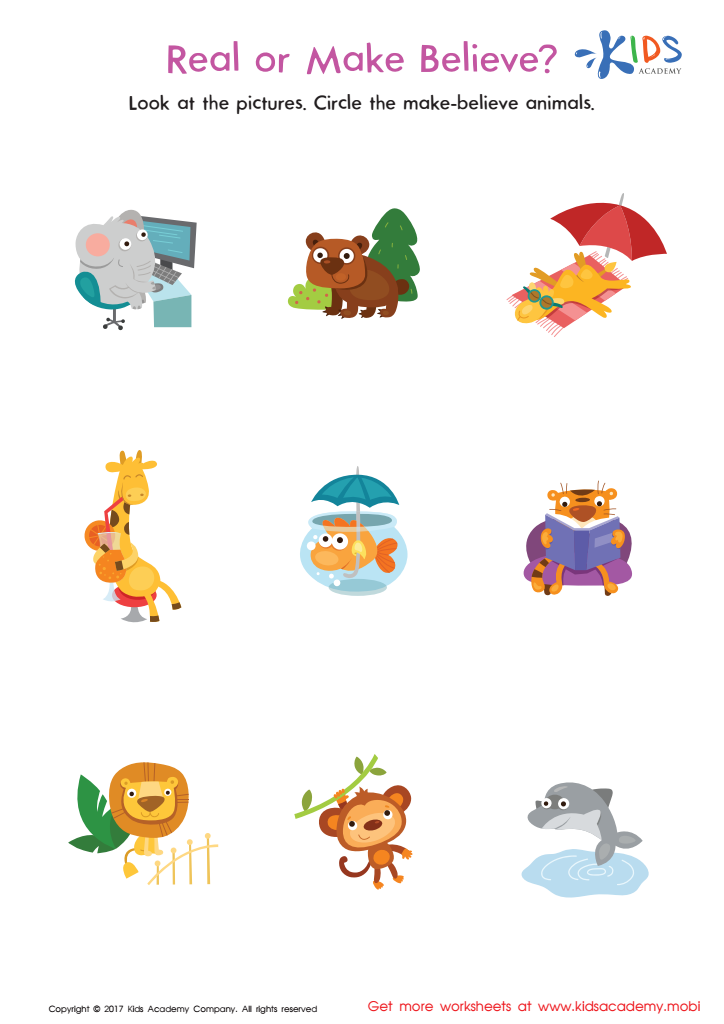

Fact or Make Believe Worksheet
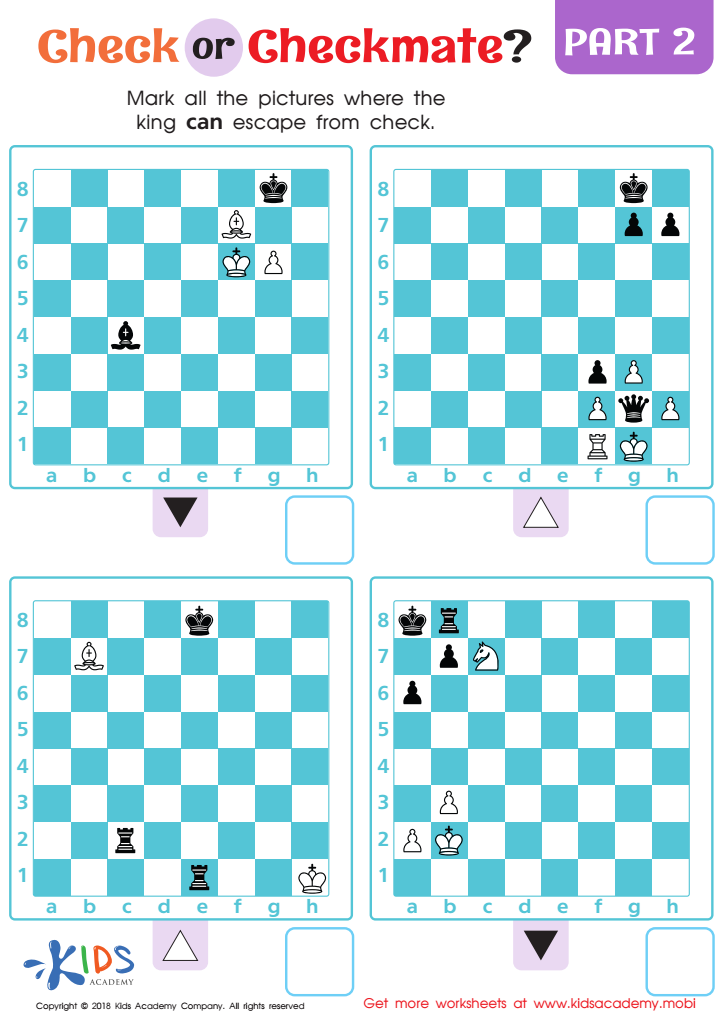

Check or Checkmate: Part 2 Worksheet
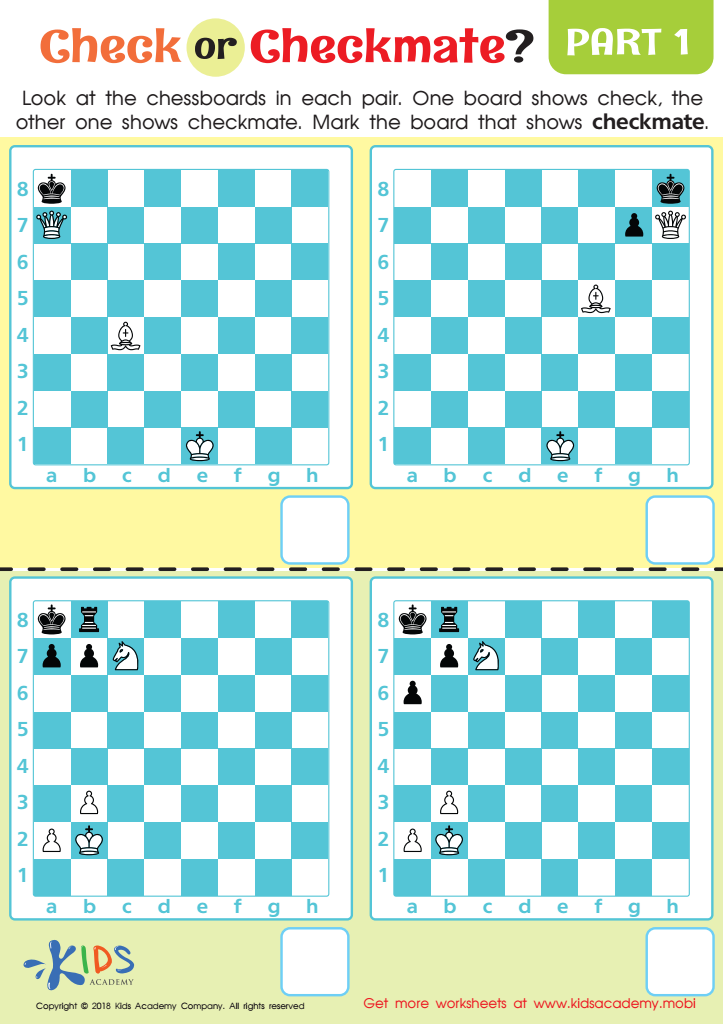

Check or Checkmate: Part 1 Worksheet
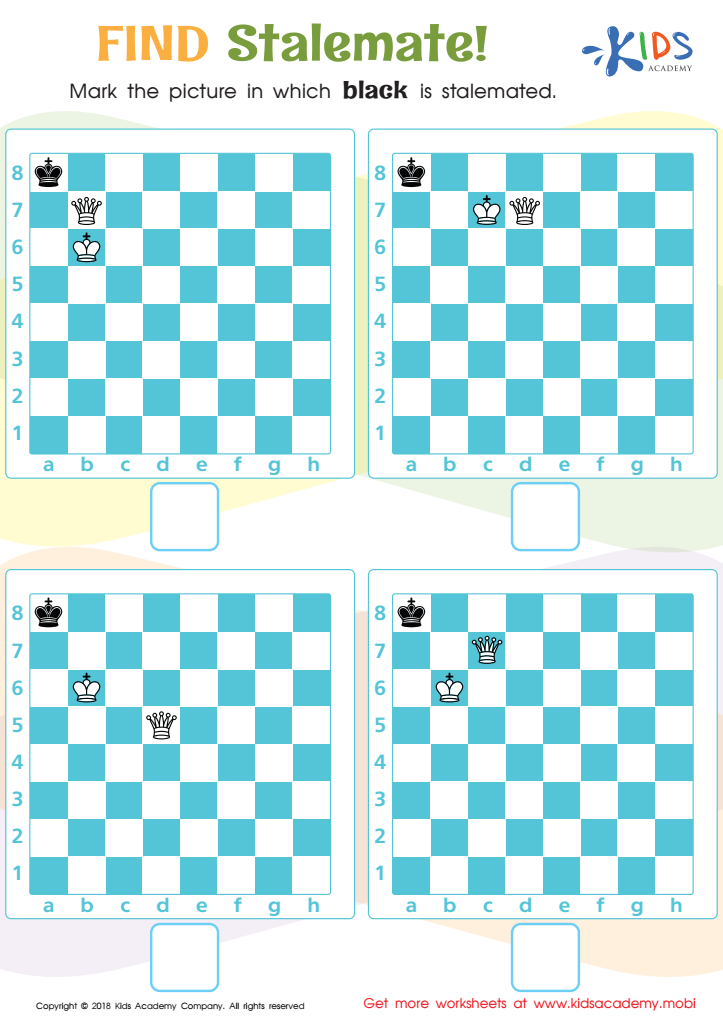

Find Stalemate! Worksheet
Critical thinking development in young children is vital as it lays the foundation for their future academic success and everyday problem-solving skills. For ages 5-7, engaging in extra challenges nurtures curiosity, creativity, and the ability to reason.
Parents and teachers should prioritize critical thinking exercises to improve children’s cognitive abilities. These activities enhance their capacity to make connections between ideas, solve problems innovatively, and make informed decisions. For instance, by tackling puzzles or playing strategic games, children learn to analyze situations, weigh options, and anticipate outcomes.
In this early age group, critical thinking also boosts confidence. When children master challenging tasks, they gain a sense of accomplishment and become more willing to tackle new and complex challenges. This self-assurance transcends into other areas of learning and life, encouraging inquisitiveness and a love for learning.
Furthermore, fostering critical thinking weaves valuable life skills such as emotional intelligence and perseverance. As children learn to think critically, they begin to empathize with others’ perspectives and navigate social scenarios more adeptly.
In essence, investing in critical thinking development from a young age equips children with indispensable tools for personal and academic growth, ensuring they’re well-prepared to face future challenges thoughtfully and resourcefully.
 Assign to My Students
Assign to My Students






.jpg)
